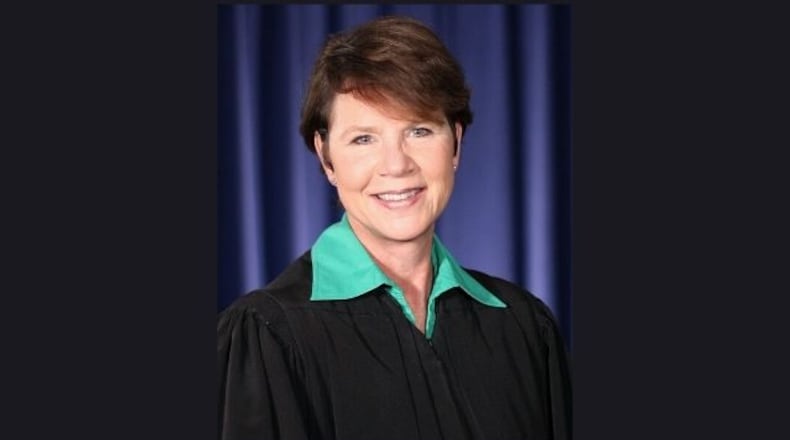“As judicial officers faced with any challenge... the overriding question we need to ask ourselves is ‘what is best for the people we serve?’ Every answer, every solution begins and ends with the people we serve,” she said.
The chief justice pointed to the development of specialized docket programs in court systems throughout the state as a way to “change lives,” sharing the successes of court systems. She said more room to grow exists in the state’s judicial system.
Specialized docket programs are sessions of court that offer a therapeutically oriented judicial approach to providing court supervision and treatment to people.
Statewide, 214 judges operate state-certified specialized dockets. In Montgomery County, eight specialized docket programs related to mental health and substance use have been certified by the state, according to the Ohio Supreme Court.
Kennedy said Ohio courts can make a difference in helping survivors of human trafficking, pointing to several specialized docket programs throughout the state.
“People who have been trafficked need support and unwavering belief that they can transform their life of dependency to one of freedom and breaking chains,” Kennedy said.
Ohio courts collectively are serving 262 survivors of human trafficking, Kennedy said.
The court system also plays a role in addressing recidivism — the frequency of an inmate reoffending and returning to incarceration — in their communities, and court leaders can help people leaving incarceration re-enter into life, Kennedy said.
“We all have an opportunity to break the revolving door of recidivism by helping those who achieve a life restored, live a life restored,” she said.
In April, the Ohio Supreme Court launched a re-entry task force that consists of judges and mental health agency leaders. The task force analyzes housing, employment, education and health care opportunities for people leaving incarceration in both prisons and jails.
Not all of society’s issues start in a courtroom, Kennedy said. But often they end up in the court system.
One issue that points to struggles young people may be facing is truancy, and Kennedy said courts can work with schools to encourage youth to better engage with their education.
Kennedy also applauded Warren County’s court system, which works with schools to offer online courses to help parents learn about the requirements for attendance and techniques for setting up a routine.
“Judges across this state are embracing opportunities to change lives, to pivot and change with changing times, to adapt to changes that they see on the horizon, while remaining committed to the rule of law,” Kennedy said.
About the Author

